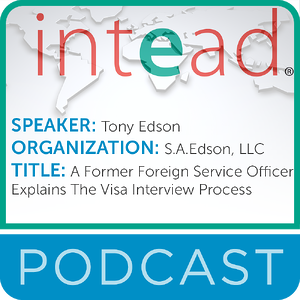The visa interview is one of the unpleasant steps in the process of becoming an international student in the United States. We recently had a conversation with Tony Edson, who worked for the State Department for 28 years and dealt with the visa process. We suggest five activities to help your prospective students feel more comfortable with the process. You can dispel online and offline rumors that make your students nervous during the interview, set the right tone and show that you care about your students. You will be doing your job better, increasing the odds of your students receiving the visa without a hitch and allowing them to enroll at your college. Don't leave it up to chance.

Here are five suggestions to help your international students prepare for the visa process.
- Prepare a document that clearly explains your academic programs, in particular, if the student will be part of a pathway program or community college with transfer options. You want to enable the student to succinctly express his decision to enter your program and the goal of academic study.
- Prepare a document to present your school that can be attached to the I-20. This is most important if you are one of the majority of schools with regional U.S. brand recognition and no broader U.S. or international brand. Remember, if the visa officer is from California, he/she may never have heard of Lorain County Community College or Hiram College in Ohio.
- Explain to the students the visa process and purpose. If you have the resources, you can do it one-on-one, if not, then webinars, videos in English or even better in local language will do a fine job.
- During your travels to various international recruiting markets, visit the local U.S. embassy or consulate. I was interested by that piece of advice from Tony Edson since I always assumed that embassies in the main markets will be too busy. That may still be the case, but if you focus on particular areas, your name and school should be known to the embassy. Remember that embassy staff rotates every 2-3 years, so keep the embassy on you trip schedule.
- Follow up on rejections. We have seen cases in various countries that upon rejection, a resubmission with further explanation or a support letter leads to success. Many times, the psychological impact on students and parents is the hardest part to overcome. They are embarrassed and take the rejection personally. Again, going back to having the appropriate explanations in place for the process is important.

You can just search YouTube for videos --Here is an example of a short video from the US embassy in Korea as well as a longer video prepared in India. Remember that Chinese students can generally not get access to YouTube.
If you are interested in more details, here is a link to our podcast with Tony Edson

 iTunes | intead
iTunes | intead